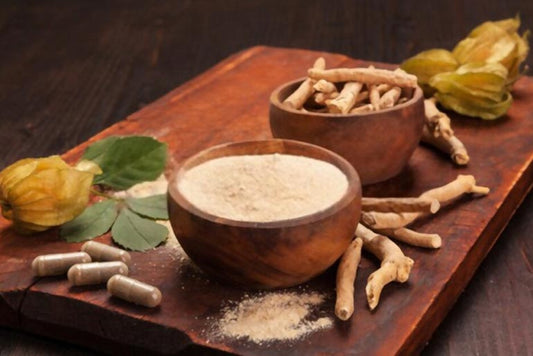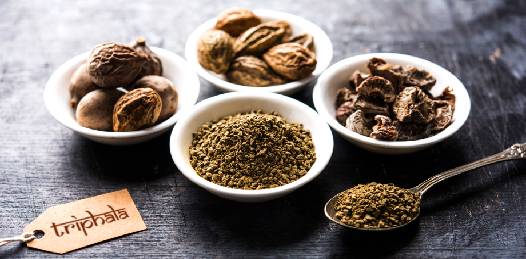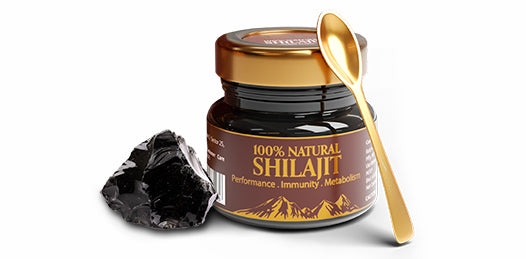
It's no surprise that humans are on a slippery slope when it comes to health. We understand that with a fast paced life and limited time, one can quickly adapt to an unhealthy lifestyle, but this imbalance can profoundly impact your health. Considering the current COVID19 situation, the need for an active lifestyle has reached its peak. The modern youth are both, health-conscious and quite experimental. They give a whirl to fad diets, meditation, holistic healing programs, and their most recent mania is Ayurvedic products.
It's hard to delineate how in the 21st century, we still marvel at the 3,000 years old technique of healing?
Ayurvedic products and ritualistic practices have been a traditional part of Indian households and have achieved considerable prestige among the millennials. Ayurveda is like mother nature; it keeps reminding you of its preeminence in every step of your life.
Here are the reasons why the world keeps running back to Ayurveda
1. It is a long-standing healing practice
Ayurveda has been around for more than three millenniums and originated from a South Asian country, India. This long history has maintained harmony between nature and the body. The sage or masters in myths and legends, who served as guardians of knowledge, advisories to heroes and healers of the injured, welcomed the ayurvedic techniques in their lifelong journey. This long-standing healing practice has influenced several western healing systems around the world as well. Most ancient Indian scriptures will find mention of the various ayurvedic herbs, organic concoctions and daily practices that can result in a more holistic way of living. Even our households have each passed on some ayurvedic rituals from one generation to another over the span of several hundred years. Each of these stand testament to the effectiveness to this ancient art.

2. It believes in natural healing
As most of the healing practices aim to battle against a particular disorder, Ayurveda cures the disease internally with the help of natural products. This therapeutic intervention helps rebuild the wound and enhances the vigor and vitality of the body. The practice includes external wound healing, therapies, internal medications and panchakarma. Ayurvedic healing primarily focuses on reducing symptoms, eliminating impurities, increasing disease resistance, reducing stress, and increasing harmony in life. Most ayurvedic remedies are a combination of organic herbs and are entirely chemical free, making the healing process all natural and free from harmful side-effects and extreme bodily reactions. With the latest industrial trends seeing a shift to more simplistic lifestyle, the demands for natural ayurvedic products has also seen a massive surge and their herbal constitution is at the root of this new found frenzy.
3. Entails healthy diet and herbs
Despite consistent use of spices like turmeric, basil, cumin, cardamom, saffron, etc., in our daily life, we still are unaware of the significance of these vital herbs. Ayurveda connects us with these essential natural and organic components that protect our body from diseases and offers an assortment of health benefits. The ayurvedic diet encourages the consumption of whole foods like vegetables, fruits and legumes. These nutritious, rich foods promote weight loss and protect against chronic diseases. Ayurvedic superfoods like Ghee, Ginger & Honey, Lemons, Triphala, Amla, and Moringa are known to have miraculous impact on overall health and immunity building. Several Ayurvedic herbs can be infused within this healthy diet to ensure an overall holistic meal plan.
4. Connects with nature
Ayurveda relies on the harmony and balance between earth, fire, water, air and space. It defines that any disconnect with nature can be risky to your health. Nature heals us. It soothes and recovers the nervous system and forces the connection with something bigger than ourselves. An easy walk through the woods or a quick meditating session among your green friends can scrub you clean of worry, stress and anxiety. The simplicity of nature is infused into every practice of Ayurveda, including skin care, diet, mind and health. It unplugs the human system from the toxic world outside and takes on an expedition to Zen.
5. Maintains a peaceful lifestyle
Ayurveda ensures a parallel path between perfect health and an enlightened mind. To attain a peaceful lifestyle, one needs to rid themselves off the emotions that cause them pain and disturb their mental peace. Ayurveda helps you get a step closer to the mind's true nature. Regular meditation, yoga, breathing exercises, massages and clean, organic eating habits allow the body to detoxify itself and rejuvenate back to better health. Ayurveda emphasizes upon an overall growth and development of the body by adopting lifestyle habits that encompass practically every aspect of our daily lives. This results in a cyclical routine that is conducive to mental peace and spiritual development of the being.

Let's look at some simple ways in which each one of us can adopt an ayurvedic practice, ritual or meal ingredient in our everyday routines;
1. Swedana : Swedana or the Ayurvedic practice of steaming has managed to garner a lot of emphasis in the ancient Ayurvedic texts for its ability to detoxify the body and rid it off harmful free radicals. The practice gained even more traction after the COVID 19 outbreak as more and more people were looking for natural solutions for building preventive immunity and protecting themselves against the virus. Swedana literally translates to, “to seat or to prerspire”. Steaming as a regular practice can help us purge out harmful toxins from our body and cleanses it from deep within.
2. Oil massages: How can we talk about ancient rituals passed down in our families and conveniently skip out oil massages? Hair massages by our grandmothers form a part of one of our fondest childhood memories. Ayurveda prescribes various types of oils, depending upon the need, weather, and dosha that one is looking to resolve. Abhyanga oil massages of the body with essential oils that are infused with ayurvedic herbs are a great way of relieving stress and improving blood circulation.
3. Ayurvedic Diet: Incorporating various Ayurvedic herbs and other such organic ingredients within everyday diet is not an especially difficult task and can be achieved by most of us. Your bodily doshas can help determine the kind of organic herbs and nutritious fruits and vegetables you need to include within your diet for your wellbeing.
4. Ubtan masks: Ubtan rituals have had a great deal a significance within Indian tradition. There are several Ayurvedic Ubtans that can be used for multiple skin ailments. One of the most commonly used Ubtan is the one that is applied during traditional Indian wedding ceremonies. Depending upon the skin ailment one intends to resolve from the ingredients of an Ubtan shall also vary.
5. Drinking lukewarm/ Room temperature water early in the morning: Staying hydrated has become a part and parcel of the popular wellness and bodily care culture of late. Ayurveda too calls this an essential practice. This is a great way off flushing out the toxins accumulated within your body overnight and giving your body a fresh start.
6. Nasya: While this might seem a tad difficult for some Nasya is in fact a part of one of the 5 Panchakarma pillars. Putting a couple droplets of oil infused with ayurvedic herbs or ghee, into the nostrils helps lubricate them and is great for nasal health. Ayurveda suggest that this practice is capable of nourishing our prana.
7. Vyayam: How can we talk about everyday lifestyle changes and completely forget about exercise? The importance of exercising regularly can't be emphasized enough and the Ayurvedic scriptures concur. Daily vyayam like morning walks or even yoga will help increase your strength, endurance, and overall physical as well as mental health and wellbeing.
8. Pranayama: Now we will talk about the one activity that comes naturally to all sentient being, i.e., breath. The intention behind pranayama is to become conscious of our breath and the life force that flows within us. There are several techniques of pranayama like Anuloma Villoma, Bhramari and Ujjayi pranayama. Incorporating any of these post our daily vyayam can help us deal with stress and soothe our senses.

9. Meditation: Finally let's bring our everyday Ayurveda tips for you to an end with one of the most talked about ayurvedic practices of Meditation. Meditation is the way of gaining mindfulness and looking within ourselves. Slow, focused and conscious breathing for a fixed time period, every day as a conscious ritualistic practice, to try and achieve awareness of oneself is extremely crucial for clear thought, feeling one and at peace with our surroundings and achieving mental balance and peace.
Organic ayurvedic treatment and practice provides positive effects even when applied in consonance with conventional medical care. The Ayurvedic herbs infused in these therapies and rituals, retain equilibrium of mind, body and soul and help us lead a more wholesome life. If you are looking to bring long-lasting change into your diet, health and lifestyle, Ayurveda is the way to go.











